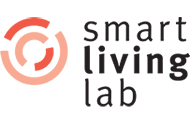Swiss-Korean Academic Exchange Program on built working environment
The smart living lab team comprised of professors Dolaana Khovalyg (EPFL), Dusan Licina (EPFL), Raphaël Compagnon (HEIA-FR), Denis Lalanne (University of Fribourg), and Industry liaison officer Martin Gonzenbach (EPFL) traveled to Seoul, South Korea, for the kick-off meeting on 3-4 September to develop the Swiss-Korean Academic Exchange Program on the topic of sustainable and comfortable built working environment. South Korean partners were represented by professors Thorsten Schuetze (SungKyunKwan University), Yoonhie Lee (EWHA University), Sung-Taeg Nam (Hanyang University). The program was initiated by the Science and Technology Office (STO) of the Embassy of Switzerland in the Republic of Korea, led by Alessandra Apicella, as the cooperation in science and education between the two countries.
The attention to the concept of comfort and performance in the indoor built environment is growing worldwide due to the increase in working hours in the offices and the space limitation in highly populated cities. The lack of comfort in the working space could affect the health, performance, and efficiency of the occupants. It is well known, that Seoul has an extremely dense population and high amount of office workers working extensive hours. Oppositely, Switzerland remains a relatively protected country, with low population density and a well-established attention to the inside built environment and comfort. The extreme working environment and cultural differences, traditions, and challenges of South Korea and Switzerland is fertile soil to brainstorm around the inside built environment issues.
Through the meeting of Swiss and Korean students from different disciplines such as architecture, engineering, computer science, sociology and psychology, the Swiss professors, together with their South Korean counterparts, aim to guide the students in the process of the generation of innovative solutions in the field of the inside built environment, human-building interaction in the urban reality of South Korea in the Summer of 2019 and in Switzerland in Winter of 2020. The kick-off meeting on September 3-4 established the pedagogical framework and concrete basis for the development of these two linked exchange schools. The first edition of this transcultural and interdisciplinary educational program will be available for students of EPFL, UNIFR, HEIA-FR, EWHA University, Hanyang University, SungKyunKwan University, and the call for applications will be open in December 2018.
Along with the kick-off meeting, the smart living lab team attended the Open Talk “Technology meets Architecture – Designing Together the Living Environment of Tomorrow” organized by STO Seoul and opened by the Ambassador of Switzerland in the Republic of Korea, Mr. H.E. Linus von Castelmur. The event aimed to bring together experts and innovators from academia and private sector from Switzerland and South Korea to present concrete examples of projects and visions to design together with the living environment of tomorrow. The smart living lab was presented by two talks: “Inter-disciplinary experimental platform for the built environment of the future – smart living lab” by Prof. Dolaana Khovalyg and “Human-Building Interaction” by Prof. Dennis Lalanne.

